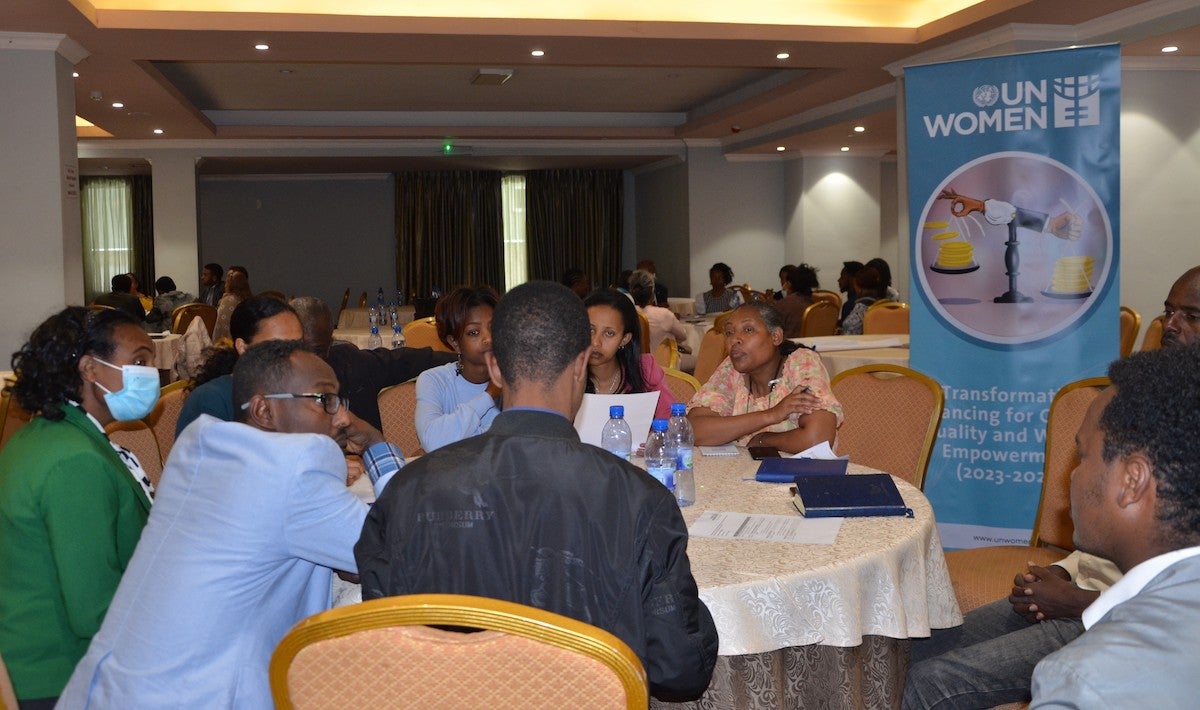
National Planning and Budgeting programme

Adequate financing of national development plans and strategies is a condition for the achievement of national development priorities. Implementing gender equality commitments at the country level requires governments to formulate policies and procedures that actively promote gender equality and guarantee women’s rights while allocating sufficient financial resources for this purpose. Therefore, a gender equality perspective needs to be adequately considered during the design and budgeting stages of the planning process to ensure that resources and interventions equally benefit women and men.
Gender Responsive Budgeting (GRB) aims to mainstream gender into public budgets, looking into how financial resources are allocated considering women and men. GRB is used to shape policies, set priorities, and provide the means to meet all citizens' social and economic needs. GRB helps governments understand potential adjustments in resources needed to achieve their priorities and commitments to achieve gender equality and advance women’s rights as stipulated in international conventions, commitments, and goals. These include the Convention on the Elimination of All Forms of Discrimination against Women (CEDAW), the Beijing Declaration and Platform for Action, and the Sustainable Development Goals (SDGs)[1]. Beyond ensuring accountability to women’s rights, GRB is also a step towards improved public transparency and economic efficiency. Increasing financing for gender equality recognizes that planning, resource allocation, and development priorities and initiatives show disaggregated data by sex- among other parameters. This helps determine the greatest needs, direct resources to those areas, and monitor how resources and planning bridge gender gaps and contribute to women's empowerment.
UN Women implemented a programme called “Transformative Financing for GEWE” which aims at contributing to the overall goal of adequate and effective financing of new and existing national and international commitments on GEWE for the last five years (2017- 2022). The programme deployed strategies such as evidence-based advocacy, capacity development, knowledge building and information sharing, partnership building, coordination, and engaging with different stakeholders to achieve the expected outcomes.
Our key achievements include the development of Gender Responsive Budgeting (GRB) toolkit for Parliamentarians to exercise gender responsive budgeting, partnership with the World Bank to assess public Finance Management in five regions and one city administrations, development of Gender Equality Performance Audit Manual for Office of the Federal Audit General (OFAG) and development of Gender Equality Strategy for Ministry of Finance (MoF). The best practice on Gender Budget Statement(GBS) from Rwanda piloted by the Ministry of Agriculture (MoA) as well as by the Federal Job Creation and Food Security Agency. UN Women also worked with Civil Society Organization (CSO) called Union of Ethiopian Women and Children Association (UEWCA) to promote GRB for equitable service delivery. As a result, 53 experts from UEWCA member organizations enhanced their capacities on GRB as Training of Trainers and abled them to cascade the training within their operational areas.